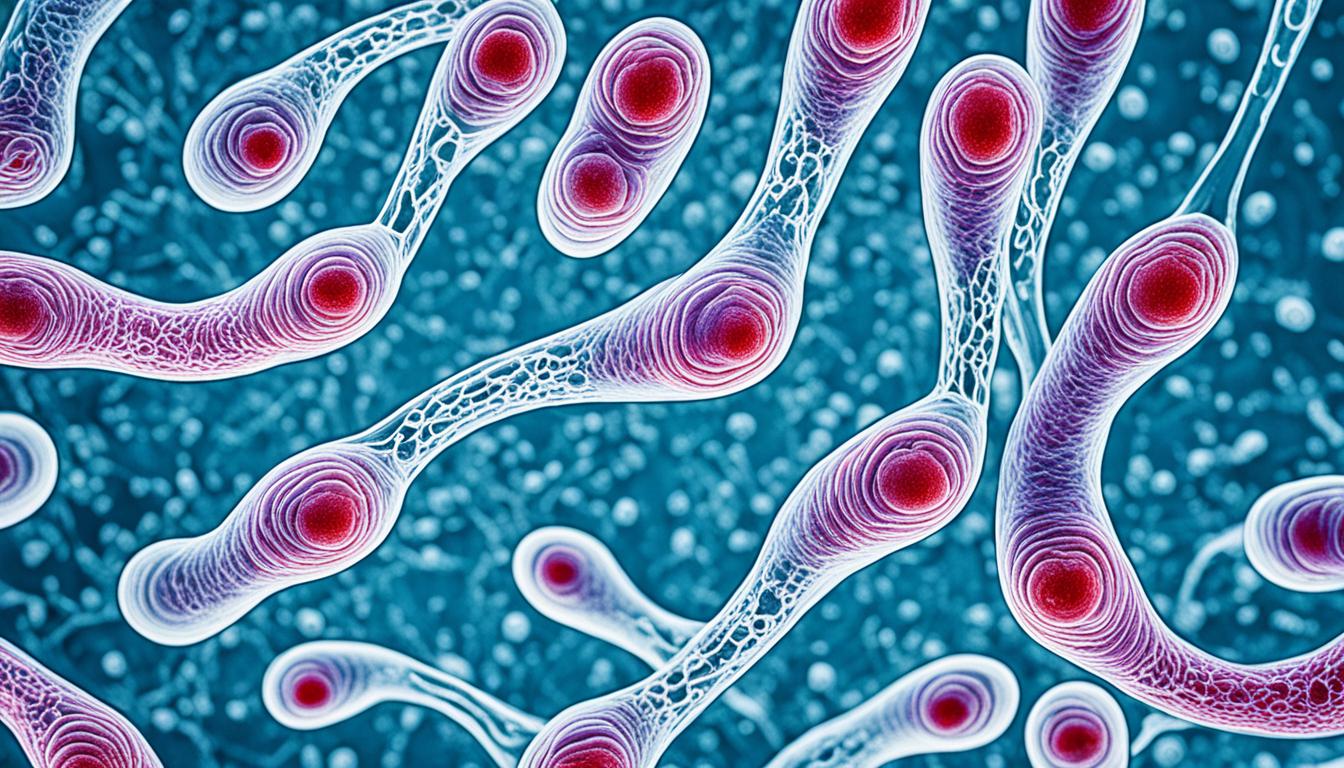Male infertility affects about 15% of couples around the world, which is 48.5 million couples. In 20-30% of infertile couples, the problem is with the male partner.
Common causes are issues with sperm, hormonal imbalances, genetic problems, and infections. Signs of male infertility can be different, like problems with ejaculation or not getting full erections. Other signs might be a lack of sexual desire, pain, or bigger breasts. Hair loss might also be a sign.
Doctors diagnose male infertility with blood tests, sperm checks, and ultrasounds. In tough cases, they might look at a small sample of testicular tissue. Treatments can include surgery, hormone therapy, and different technologies to help conception, like IVF.
Yet, these treatments don’t always work. That’s why the search is on for new ways to help, like using stem cells. Stem cell therapy shows a lot of promise in fixing male infertility. It’s an area where more research is happening.
Key Takeaways:
- Male infertility is a big issue, affecting about 15% of couples globally.
- Problems with sperm, hormones, or genetics are common causes.
- To figure out the issue, doctors do blood tests, semen analysis, and sometimes a biopsy.
- Treatments can range from surgery to high-tech solutions like IVF.
- Stem cell therapy stands out as a hopeful treatment for male infertility.
Different Types of Male Infertility and Their Causes
Male infertility falls into two main types. Primary infertility means a couple hasn’t conceived yet. Secondary infertility occurs when a couple can’t conceive again, even if they already have kids.
Secondary infertility is often linked to varicocele. This is when veins in the scrotum swell. The condition can lead to issues with sperm production and quality.
Several issues can cause male infertility. They include:
- Problems with sperm production or function
- Structural damage to the testes
- Infections or inflammation of the testicles
- Imbalances in hormone levels
- Ejaculation difficulties
- Cancer treatments
- Genetic diseases
Lifestyle plays a big role in male infertility too. Smoking, drinking too much alcohol, drugs, a sedentary lifestyle, stress, and being overweight can all hurt your chances of having children.
| Types of Male Infertility | Causes |
|---|---|
| Primary Infertility | Couples who have never been able to conceive a child |
| Secondary Infertility | Couples who have previously conceived but are currently unable to do so |
| Varicocele | Enlargement of the veins in the scrotum, disrupting blood flow and impairing sperm production |
| Abnormal sperm production or function | Genetic conditions, hormone imbalances, certain medications |
| Testicular abnormalities | Structural abnormalities, undescended testicles, previous testicular surgery |
| Infection or inflammation of the testicles | Sexually transmitted infections, epididymitis |
| Hormonal disorders | Imbalances in hormone levels, low testosterone, high prolactin |
| Ejaculatory disorders | Retrograde ejaculation, premature ejaculation |
| Cancer treatments | Chemotherapy, radiation therapy |
| Genetic diseases | Klinefelter syndrome, cystic fibrosis |
If you’re worried about male infertility, see a doctor who knows a lot about it. They can help find the causes and the right treatments.
Next, let’s explore the advancements in treating male infertility through stem cell therapy.
New Advancements in Treating Male Infertility: Stem Cell Therapy
Stem cell therapy is changing how we think about male infertility treatment. It brings hope to couples who are trying to have kids. The treatment involves using spermatogonial cells.
To start, doctors take these cells from the patient and grow them in a lab. After that, they put the cells back into the man’s testicles. This step helps make mature sperm. It works well for men who had cancer treatments or have trouble making sperm.
There’s also research on using mesenchymal stem cells (MSCs). These cells can become different types, including those needed for sperm. Scientists are working to figure out how MSCs can help make new male reproductive cells.
More study is needed, but this therapy could change everything. It might give new options to those who want to have children but face infertility. This field is full of hope for the future.

